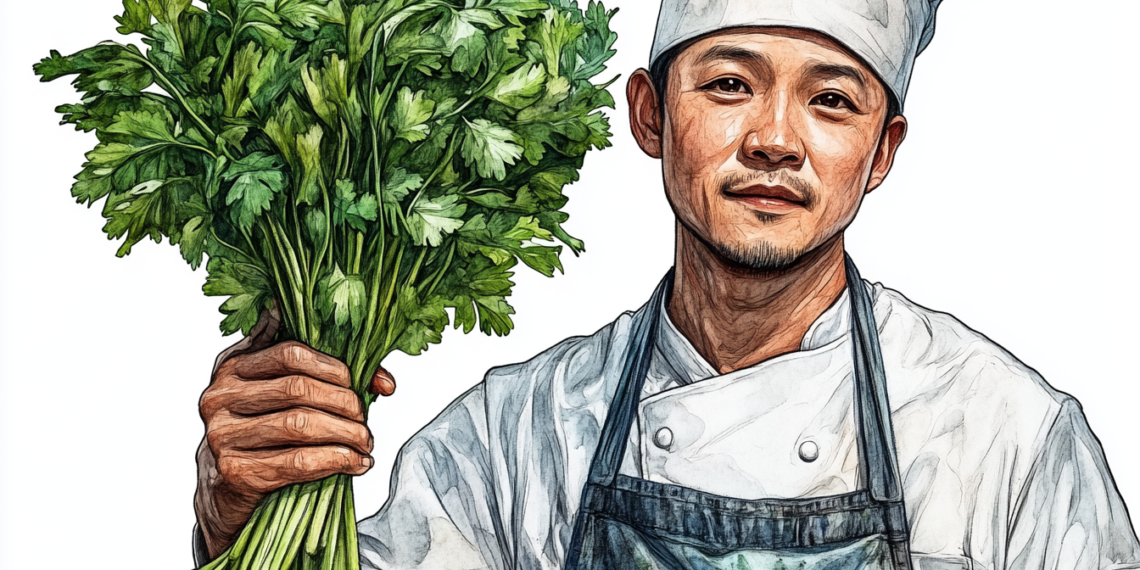Ah, coriander—the herb that divides dinner tables like no other. To some, its bright, citrusy leaves are a revelation; to others, they taste like soap (thanks, to genetics). But love it or loathe it, coriander is a global culinary heavyweight. In my kitchen, it’s the secret handshake to a good guacamole or a fragrant Thai curry. And let’s not forget the seeds—those tiny, golden orbs that whisper warmth into a spice blend. Coriander is the overachiever of the herb world, pulling double duty as both a garnish and a spice. It’s also surprisingly easy to grow, though mine always bolts faster than I can say “coriander.” Still, there’s something satisfying about plucking a handful of fresh leaves and knowing you’ve just elevated your dish from “meh” to “magnificent.” Plus, it’s packed with vitamins and antioxidants, so you can feel virtuous while eating that second helping of salsa.
But let’s talk about coriander’s personality—it’s bold, unapologetic, and doesn’t shy away from making its presence known. Indian, Thai, and Vietnamese cuisines have embraced its strength, and you’ll often find it in Latin American fare too, where it’s as essential as lime and chili. I’ve learned to appreciate every part of the plant. The stalks? Oh, they’re not just for composting. When I want to freshen up a rich sauce or dish, I chop up those stalks and toss them in. They’re like the herb’s secret weapon, packing a punch that the leaves sometimes reserve for subtler moments.
I’ve also discovered that blending coriander into a puree can be transformative. That citrusy note? It’s amplified, almost like a burst of sunshine in a spoonful. I’ll admit, I’ve been known to sneak a teaspoonful into Indian sauces to give them a more herbal angle. But here’s the thing—coriander doesn’t suffer fools. It can be overpowering if you’re heavy-handed, so this is a move best attempted with experience (or under supervision, whatever that means—probably something like having your grandmother peer over your shoulder and mutter, “Not so much, beta.”).
One of my favourite tricks is finely chopping coriander and adding it to Indian dishes or even marinades. It’s like adding a fresh, green exclamation point to the dish. But a word of caution: don’t cook coriander in hot oil. Those delicate leaves are no match for the sizzle—they’ll wilt into oblivion, leaving you with nothing but regret. Instead, sprinkle it fresh at the end, like confetti for your curry.
Coriander, for all its divisiveness, is a herb that rewards those who take the time to understand it. It’s not just an ingredient; it’s a conversation starter, a flavour enhancer, and sometimes, a lesson in humility. And if you’re lucky, it might just make you look like a kitchen genius.






